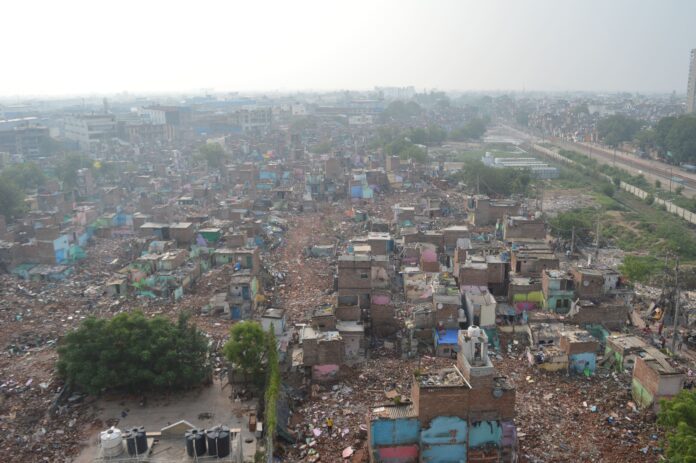
Aditya Sharma, TwoCircles.net
New Delhi: The skies have opened above the city, but for hundreds of families from Jailerwala Bagh, there is no roof to catch the rain. Only memories. Only rubble.
Anita, 36, cradled her feverish two-year-old under a plastic sheet pinned between two iron rods. “I begged them to wait. My husband brings home Rs 10,000 a month. We spent Rs 5,000 to get a stay from the court. But that meant nothing. They (the Delhi Development Authority or DDA) reduced my home to dust. Now my child burns with fever, and we are drenched,” she said with her voice barely above the sound of thunder.
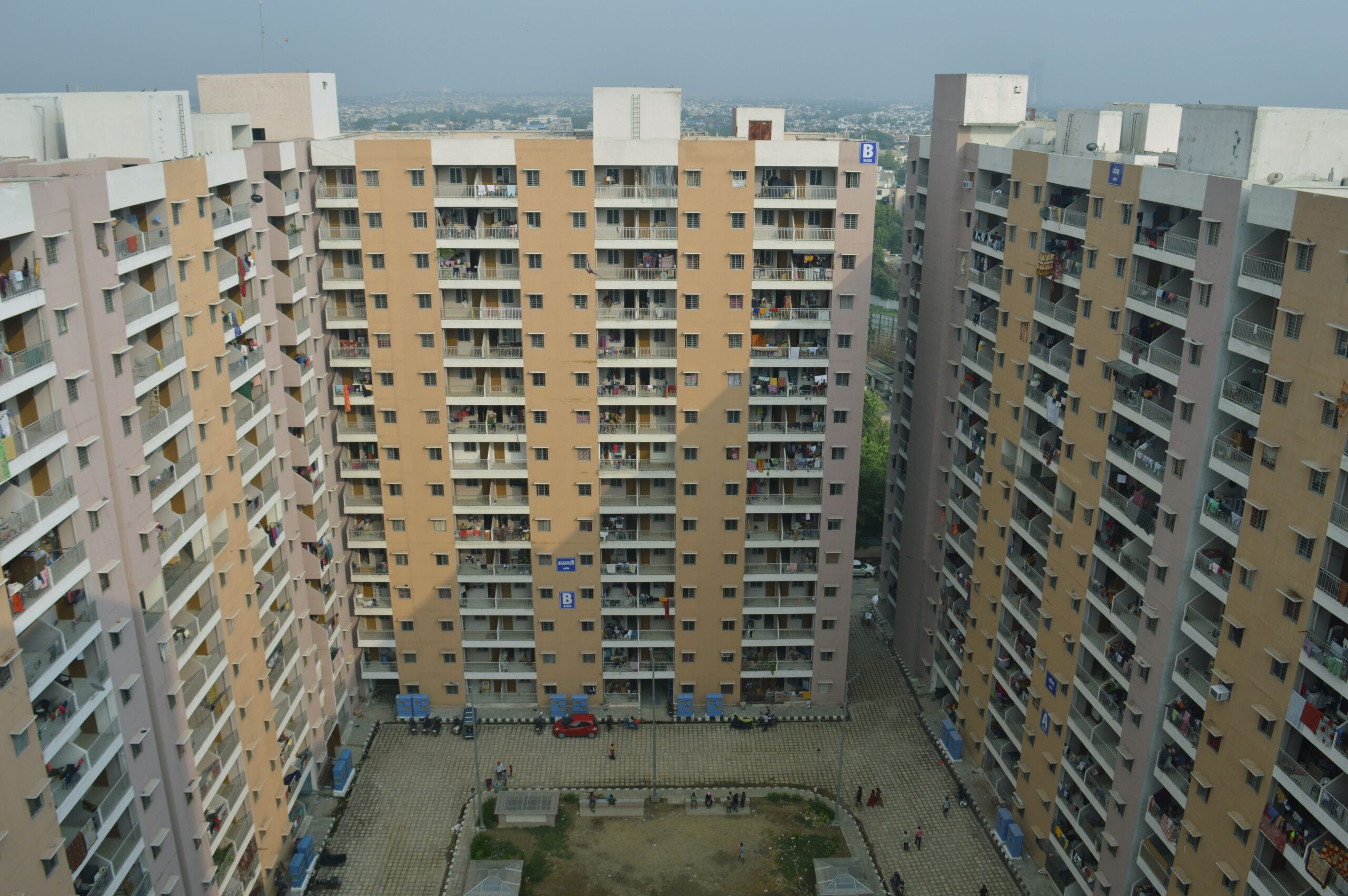
On June 16, 2025, the quiet lanes of Jailerwala Bagh in Ashok Vihar, northwest Delhi, echoed with the grinding roar of bulldozers in the early morning 7:30 AM. The Delhi Development Authority (DDA), supported by over 250 police officers and a Special Task Force, razed over 300 shanties, labelling them illegal encroachments on public land.
Tin roofs, brick walls, water containers and baby shoes – all gone. Men and women who built Delhi’s buildings, cleaned its floors and pulled its rickshaws were left staring at the sky, praying the clouds would hold.
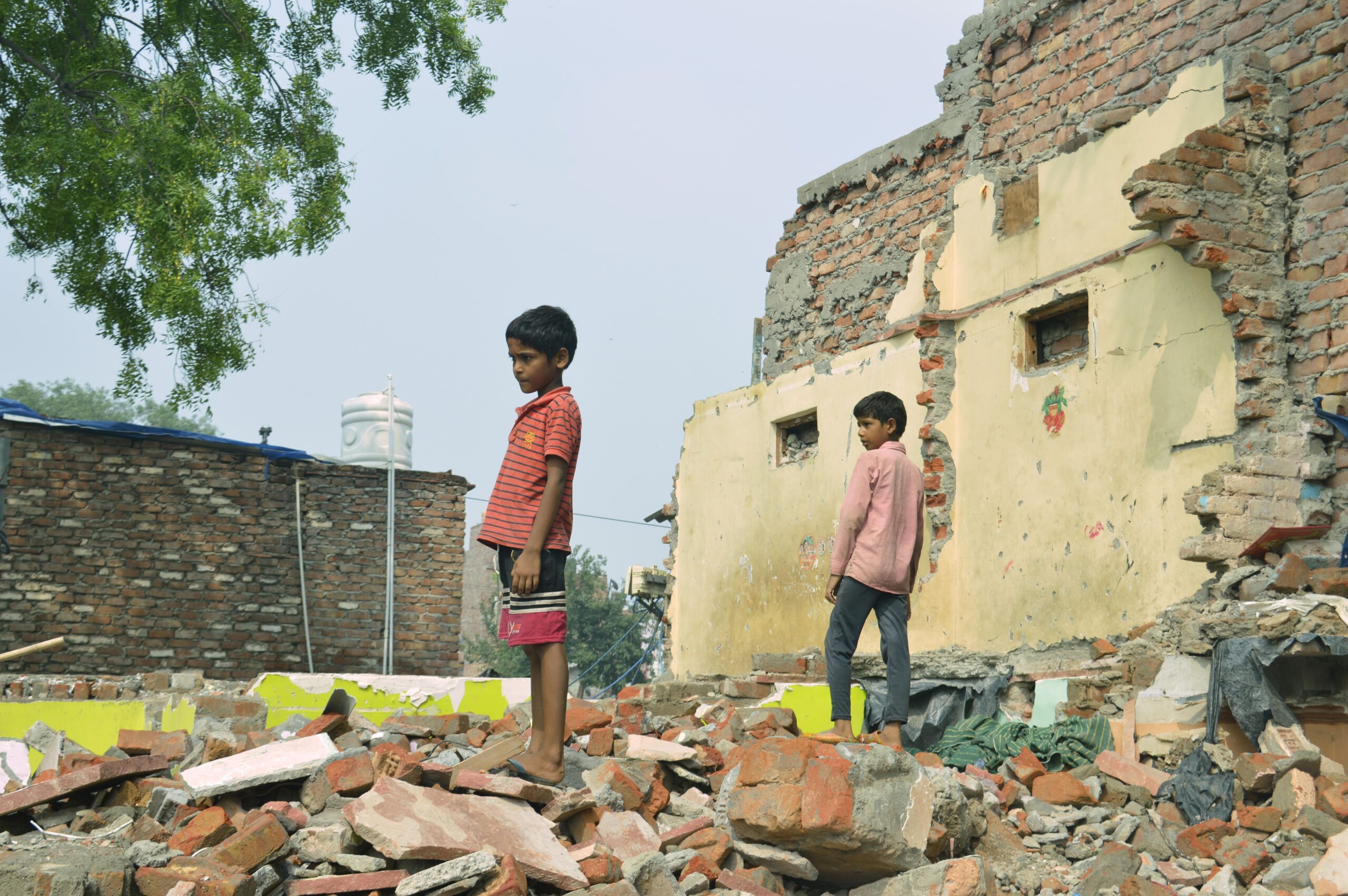
But now, the rain is here.
‘The Court Gave Us a Stay; the Bulldozer Gave Us Nothing’
Rahul, 27, a taxi driver, had a stay order from the court. He was told by the police to stand back, that nothing would happen to his home.
“I went away for a while. But something felt off. When I came back, I could not recognize my own lane. My house was gone. The court papers meant nothing,” he said, wiping sweat from his face.
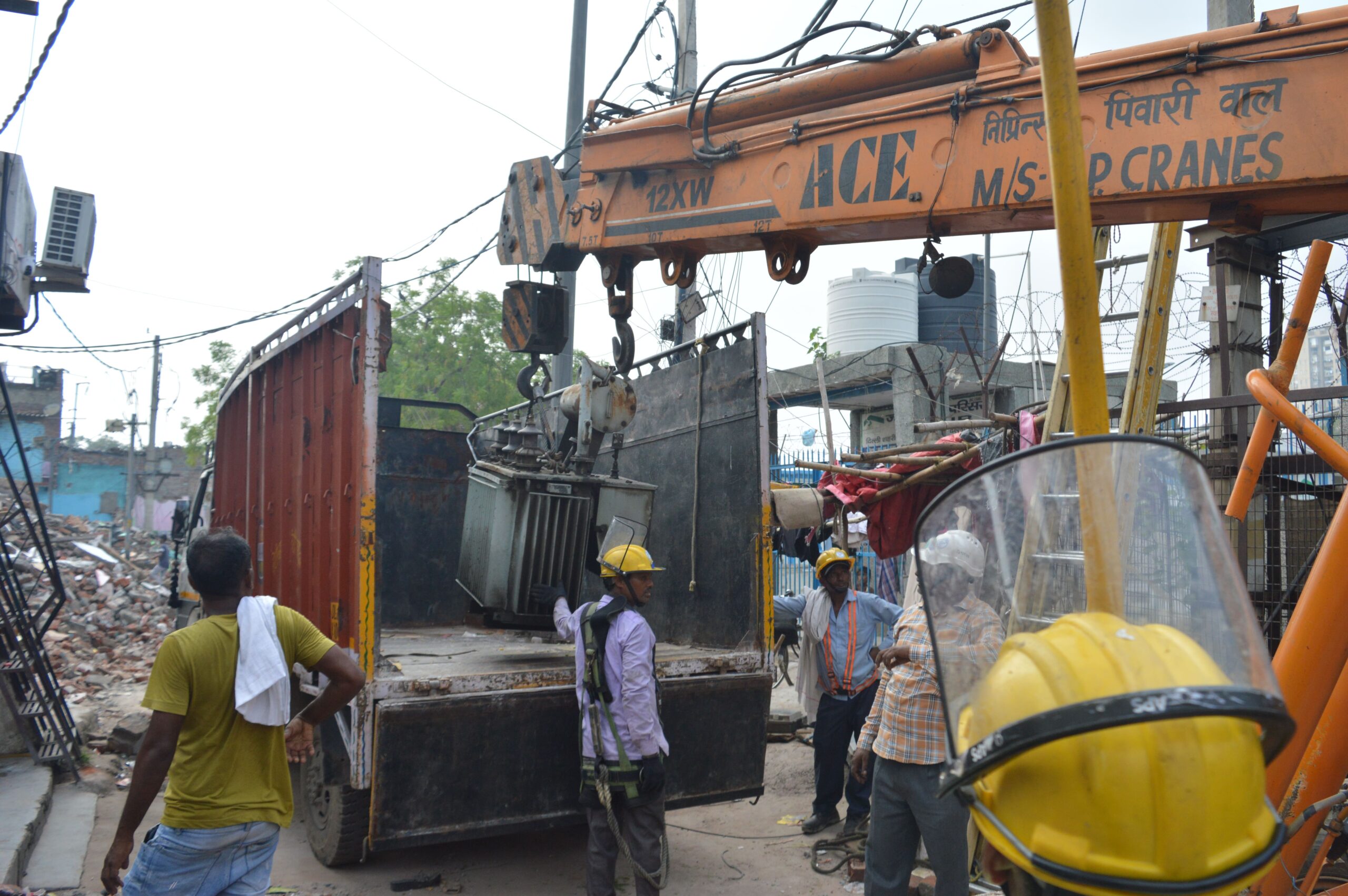
Dharmendra Kumar and his wife, both in their fifties, were spared demolition but not suffering.
“Our jhuggi still stands. But we have no electricity. No water. The wires were cut. We sit inside like ghosts in heat and darkness, while the sky cracks open above us,” he said.
Factory worker Rakesh, 41, broke down when officials from the Electricity Board pulled out cables and poles.
“Where do we go in this heat? In this rain? Are we even counted as people? I saved every
rupee to build this home. And now I cannot even switch on a fan,” he said.
Flats Promised, Dignity Denied
The DDA says the demolitions were carried out against ineligible squatters or those already allotted homes. A total of 1,078 families have been shifted to Swabhiman Apartments, they claim. But behind that number lies a mess of broken promises and impossible expectations.
As per Delhi Urban Shelter Improvement Board (DUSIB), eligibility for rehabilitation requires presence in voters lists between 2012 and 2015 and possession of at least one of 12 valid documents, including electricity bills or driving licenses.
Kamla Devi, 54, from Jaunpur, did get a flat, but it cost her Rs 2.10 lakh. Now she lives on the 13th floor, fetching water from the ground because only two out of six lifts work.
“We have no dustbins. No cleaning staff. The water smells. Thieves come in the night. If this is development, give me my old jhuggi back,” she said.
Raju, 27, who got a flat said most of the families have 5-7 people which makes it very
difficult for them to accommodate in 1BHK. Many families are having fights over spaces. “I spent ₹60,000 additional to ₹1,76,000, which was the official amount, to get this flat with a broken washroom, dirty and smelly water,” he added.
For those left behind, the story is worse. “Don’t just send bulldozers,” said Rama, 33,
showing all her documents – voter ID, Aadhaar and old electricity bills. Still, she was deemed ineligible.
“We were never surveyed. They did not care to check. We were not even counted as
humans,” she said.
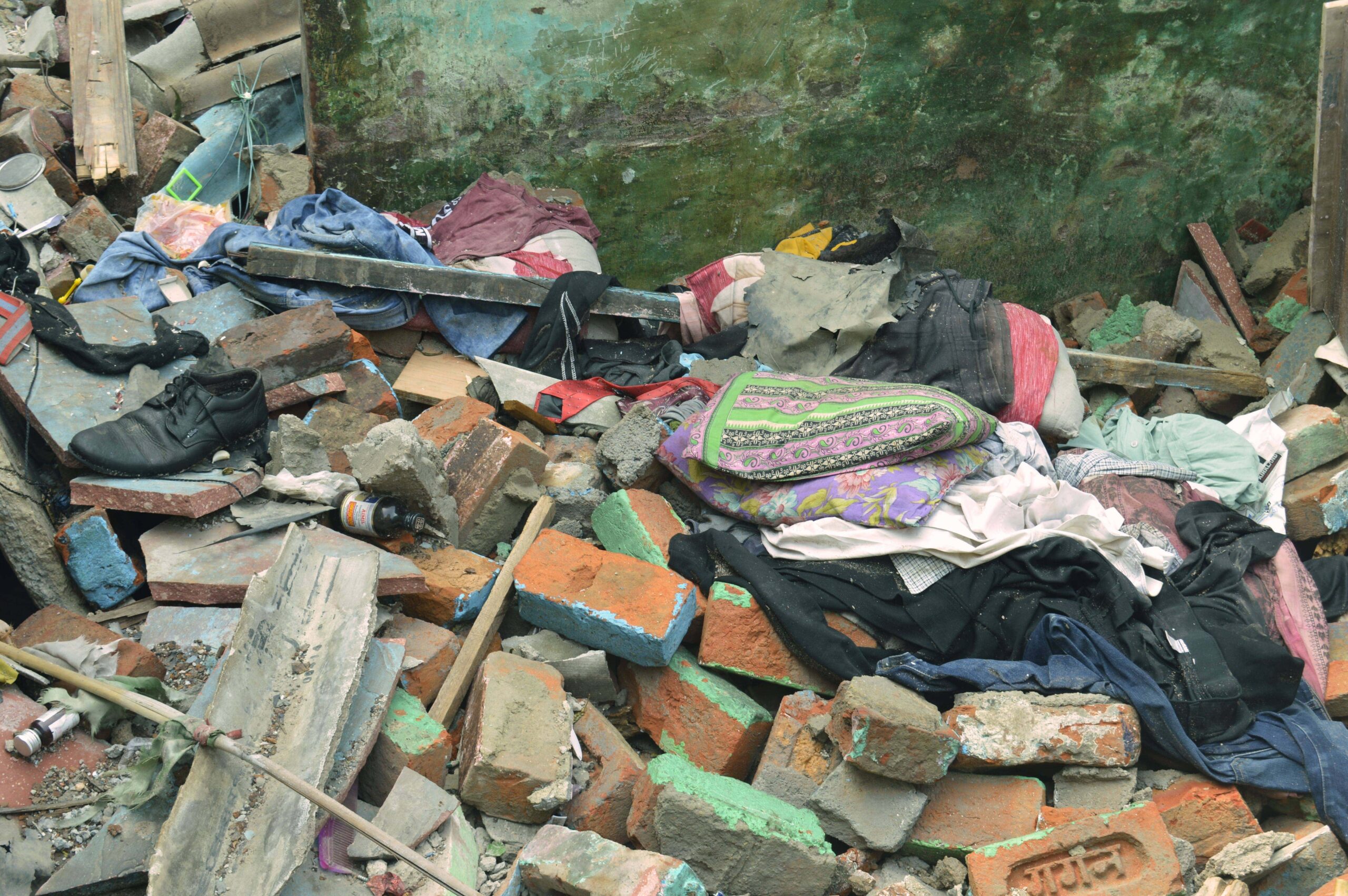
A Bulldozer for the Poor, a Wall for the Rich
Advocate Talha A. Rahman compares demolitions to riots. “It wipes out decades of life in a single morning. It is social erasure, a slow death,” he said.
Human rights lawyer Kawalpreet Kaur called the demolition brutal and pointed out that many families had court stays. Still, the bulldozers rolled on. “How can you demolish homes with legal protection?” she asked.
Mithun, a local resident, says many families were not a part of the survey. People who were out of stations came back in a rush and pleaded and cried to submit their documents which were never accepted.
“No list. No hearing. Just metal crushing bricks and lives,” he said.
Between Clouds and Cold Floors
Shanta Devi, a community fellow from the Housing and Land Rights Network described the aftermath. “Clothes buried. Beds under cement. Children looking for their school books under broken walls.”
“Who are left behind, are left with nothing. No electricity, no washrooms, no water. Water
tankers had to be brought in privately because official supplies were cut.
Politics Pours In, But Shelter Doesn’t Aam Aadmi Party (AAP) leaders called it betrayal. “Where is humanity? They (the ruling Bharatiya Janata Party or BJP) lied to people, promised homes and sent bulldozers,” Saurabh Bharadwaj alleged.
AAP’s Kalkaji MLA and Leader of Opposition in the Delhi Assembly, Atishi, in a furious post on X, reminded the BJP that Chief Minister Rekha Gupta had promised no demolitions. “Bhoomiheen Camp, gone. Jailerwala Bagh, gone. You will be cursed by the poor,” she wrote.
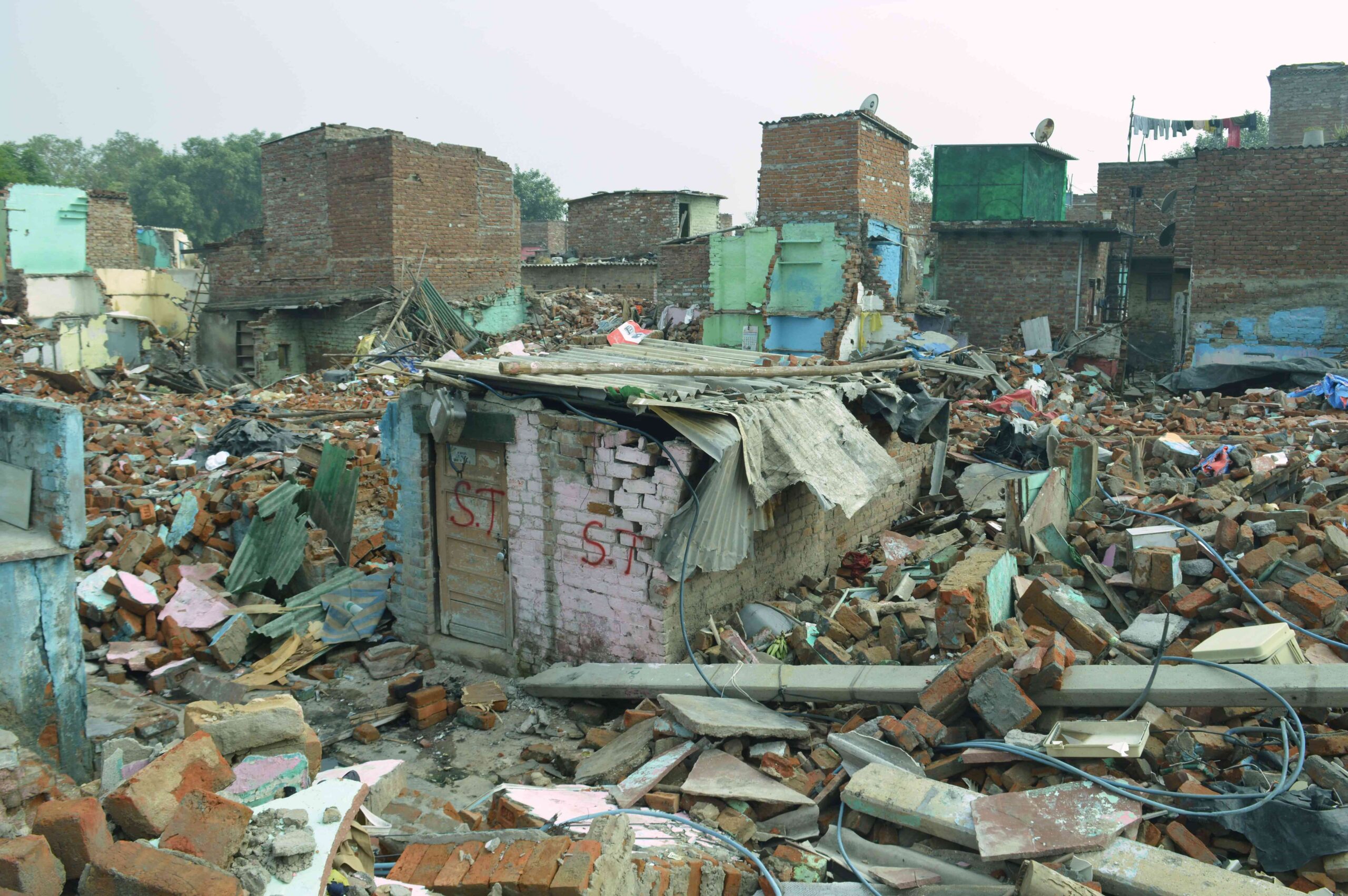
AAP National Convener and Ex-Chief Minister of Delhi, Arvind Kejriwal accused the BJP of
orchestrating a slow erasure of Delhi’s slum dwellers. “Why did Modi ji say, ‘Jahan jhuggi, wahan makaan’? Was it a lie?” he asked.
But CM Rekha Gupta held her ground adding we’re building flats, upgrading slums. “We are following court orders. Unsafe jhuggis must go. If they collapse in the monsoon, who’ll be responsible?” she said.
A Prayer Under Plastic
A dozen families were sleeping along a roadside drain. Some held umbrellas. Others used
torn tarps or bedsheets tied to poles.
Anita tried to rock her baby to sleep, but the child kept crying. “We do not want your pity. We want a roof that does not collapse. We want a life that is not washed away in one rain,” she said. Behind her, Jailerwala Bagh is silent. A community once buzzing with the clatter of utensils, the smell of street food and the cries of children is now only wind, dust and broken bricks.
The monsoon is here. And Delhi has turned its back.

